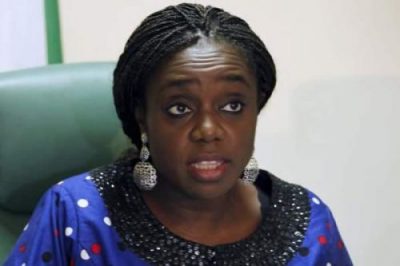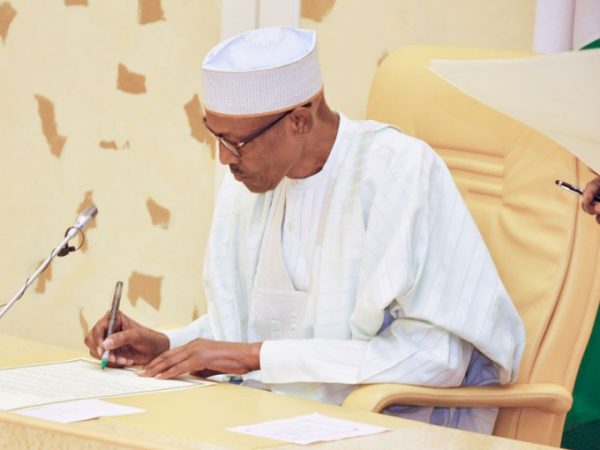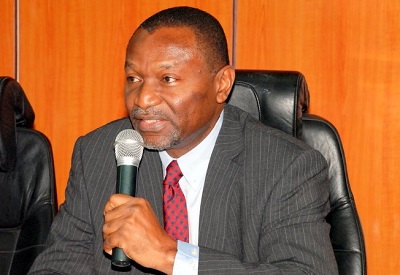Inflation, Devaluation Eroding N30,000 Minimum Wage, TUC, Others Lament
 Stakeholders, including the Trade Union Congress of Nigeria, the Nigeria Labour Congress, have expressed concerns over the continued refusal of some states to pay the N30,000 minimum wage amid the rising cost of living in the country.
Stakeholders, including the Trade Union Congress of Nigeria, the Nigeria Labour Congress, have expressed concerns over the continued refusal of some states to pay the N30,000 minimum wage amid the rising cost of living in the country.
The President, Major General Muhammadu Buhari (retd.), had in April 2019 signed into law a bill that increased the monthly minimum wage from N18,000 to N30,000.
Top officials of the TUC and NLC, who spoke with our correspondent in separate interviews, who lamented the current economic situation in the country, noted that some states had yet to start paying the minimum wage.
They stressed the need for the government to ameliorate the hardships faced by workers and called for additional palliative measures to cushion the effects of the COVID-19 pandemic and last year’s economic recession.
The National Bureau of Statistics had said last month that the inflation rate stood at 17.93 per cent in May, compared to 18.12 per cent in April.
Last month, the Central Bank of Nigeria devalued the naira as it adopted the NAFEX exchange rate of N410.25 per dollar as its official exchange rate, days after removing the N379/$1 rate from its website.
The Chairman, TUC, Lagos State Chapter, Mr Olugbenga Ekundayo, said, “The minimum wage we agreed on in 2019 is not even a full solution to the situation. It was after that settlement that the pandemic came up. Since the lockdown, people have lost jobs, and a lot of things have happened.
“There has been recession and serious inflation. You can say, as it is now, reviewing the minimum wage again now won’t be out of place. However, there are terms of engagement, there is a requirement for when or how soon the review should be.
“The truth of the matter is workers are complaining. Right now, there is a need for the government to supplement and that can be done through different palliatives.”
Ekundayo said the union had written to the government to provide more benefits to the workers.
“We have written to the government to provide tax incentives and other welfare activities that can help workers cope with the current situation. Those are things we expect the government to do,” he added.
The Chairman, National Labour Congress, Lagos State, Funmi Sessi, decried the refusal of some state governors to pay the N30,000 minimum wage.
He said, “We would like to consider reviewing the minimum wage, but we are still talking about some governors who have refused to pay the N30,000.”
“The governors were part of the negotiation. The demand by the workforce was N65,000 initially, and the stakeholders were assembled and they deliberated for more than two years before we agreed that only N30,000 could be the best for the workers. So, how come the state governors are now saying they cannot pay the N30,000? That is what a family has to depend on for a month.”
She stressed the need for the government to improve the welfare of Nigerians, saying, “The government should provide some palliative measures for Nigerians because with the rate we are going, poverty is being created more and more. Our leaders are not sensitive to the plight of Nigerians.”
On her part, the immediate past President of Nigerian Association of Chambers of Commerce Industry, Mines and Agriculture, Hajiya Saratu Aliyu, said increasing the minimum wage would cause an increase in the inflation rate.
Aliyu said, “The situation in the country is really very harsh on everybody. We all know that the minimum wage is not adequate for workers. Increasing the minimum wage is not going to work because everything is expensive in the country.
“The best thing for the government to do is to bring down the prices of food items so that everybody can afford to buy food.”
The President, National Association of Small and Medium Enterprises, Prince Degun Agboade, said states should be allowed to determine the minimum wage they can afford to pay.
“Minimum wage should not be increased generally but on a state per state basis. That would mean they pay according to what the economy indicates. I agree that prices are going up, inflation is on the rise, and salaries should be increased.







